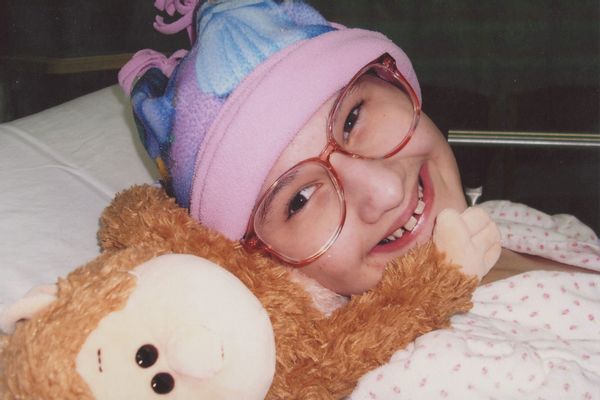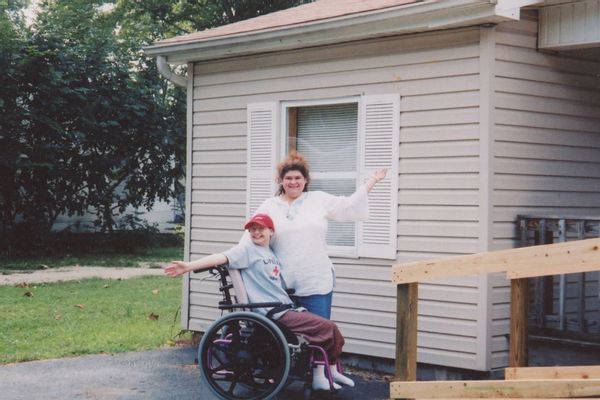Making sense of Gypsy Rose Blanchard’s celebrity status, while overlooking glaring issues
Most of Gypsy Rose Blanchard’s waking life has been spent in some state of performance. Her mother Clauddine “Dee Dee” Blanchard persuaded family, friends and neighbors that Gypsy Rose suffered from an array of afflictions — from muscular dystrophy to leukemia to extreme developmental disabilities — that left her with the psychological capacity of a young child.
Until one day in 2015 when Gypsy Rose’s former boyfriend, Nick Godejohn, stabbed Dee Dee to death, her neighbors, friends and their local community in Missouri took Gypsy Rose to be a wheelchair-bound angel who loved Disney fairy tales and bravely battled an onslaught of diseases.
Once police tracked her and Godejohn down at his parents’ Wisconsin home, the world found out that Gypsy Rose was something else entirely. Many things, actually. Gypsy could walk and was older than she presented – not in her teens, but 23. She was mentally competent. Bright, even.
Further media coverage of her case reframed Gypsy as one of the most extreme cases of Munchausen syndrome by proxy ever presented, a victim of severe abuse whose world was misshapen by a profoundly disturbed mother. Murder conspirator, battered innocent, unwitting fraudster, trauma survivor – Gypsy Rose is true crime’s equivalent of an EGOT superstar.
That comes across as a flippant or heartless summation, admittedly. This is a woman who existed in a state of fear and torture for most of her stunted life and bounced from a prison-like life with a sinister parent into the clutches of a deranged stranger who lured her into an online relationship with BDSM fantasies. Given all she’s been thorugh, Gypsy is not to be reviled or feared but empathized with.
Lifetime’s “The Prison Confessions of Gypsy Rose Blanchard,” however, tests one’s charitable sentiments. Between the corny theme song with its refrain of “But you can never take my so-o-ul!” and the tearful clip of Gypsy Rose sharing her fear she’ll never find love, the overwrought three-night, six-hour tabloid series makes you appreciate the stylistic nuance that “To Catch a Predator” once employed. But it also lays the groundwork for the recently paroled 32-year-old to reenter society on a plush runway of understanding.
Gypsy is not a dangerous girl, but one whose relationship with reality was exceptionally muddled.
Gypsy Rose says her entire time in Chillicothe Correctional Center was devoted to earning early release, and that over the past decade, she’s experienced more freedom than she ever had in her life. Chillicothe, where she served 85 percent of her 10-year sentence for her part in her mother’s murder, was her promised land.
Sounds ironic, she says, but from the time she was born, her mother controlled everything Gypsy Rose said or did. And from the moment her case made national news, a rapt segment of the public gobbled up every wild, grisly detail about her life that emerged from police reports and family interviews.
Gypsy Rose Blanchard’s case fueled a 2017 HBO documentary, “Mommy Dead and Dearest,” drew Dr. Phil McGraw to Chillicothe as part of an episode about her that same year and was the basis of Hulu’s 2019 limited series “The Act,” in which Joey King played Gypsy Rose to Patricia Arquette’s Dee Dee. The horrific nature of Gypsy’s upbringing negates any debate as to why that is.
 The Prison Confessions of Gypsy Rose Blanchard (Courtesy of the Blanchard family/Lifetime)Dee Dee had a closet filled with pills and other other medical implements she forced on her daughter, along with hiding her real age from Gypsy Rose. Her mother was also masterfully manipulative, making sure that her daughter was never entirely certain how old she was and convincing her father, Rod Blanchard, that Gypsy couldn’t walk.
The Prison Confessions of Gypsy Rose Blanchard (Courtesy of the Blanchard family/Lifetime)Dee Dee had a closet filled with pills and other other medical implements she forced on her daughter, along with hiding her real age from Gypsy Rose. Her mother was also masterfully manipulative, making sure that her daughter was never entirely certain how old she was and convincing her father, Rod Blanchard, that Gypsy couldn’t walk.
Dee Dee compelled Gypsy Rose to use a wheelchair in public – although she was always ambulatory – with threats of neglect or physical abuse if she didn’t obey. Gypsy Rose was so convincing at playing up her infirmities that doctors subjected her to numerous unnecessary surgeries, including having her salivary glands removed and installing a feeding port in her stomach.
Munchausen syndrome by proxy, which the Diagnostic and Statistical Manual of Mental Disorders also refers to as “factitious disorder,” is defined by its perpetrator inducing or coercing another person to fake physical and psychological symptoms expressly to obtain attention and sympathy.
Without intending to (as far we know) Gypsy Rose Blanchard has drawn a surfeit of both. We will never know whether Dee Dee would be insanely jealous of that or extremely proud. That is said with nary a mote of sarcasm.
The public’s extreme engrossment with this case is astounding but not entirely baffling, especially if you watch “Mommy Dead and Dearest,” which was produced when the headlines were fresh and the violently emancipated main character told her part of the story before serving her sentence. As Erin Lee Carr’s measured documentary concludes, Gypsy is not a dangerous girl, but one whose relationship with reality was exceptionally muddled.
Regarding her eventual release from prison Carr told Salon in 2017, “I just hope that she can experience happiness, can experience driving, putting on makeup.” Just shy of seven years later, she and the rest of us can watch that wish be fulfilled via what may be one of the world’s longest exit interviews doubling as a society debut.
Gypsy Rose shows up on Lifetime with new and expanded versions of previously told chapters, hair coiffed, lips glossed, smile bright. In a Hollywood Reporter interview and Lifetime’s series, she expresses her enthusiasm for therapy and her determination to live a normal life, claiming not to have seen all the TV shows about her.
There is no way someone could be as connected to a manipulator on Dee Dee’s level and not either actively or passively pick up a few of her behaviors.
Thus she may be shocked to discover that the world views her as reality TV platinum – part wholesome girl next door, part Anna Delvey. Probably not, though. Asked by THR whether she’d answer any hypothetical Hollywood calls, she noncommittally says, “Sometimes opportunities arise and it depends if I want to take it on or not. So, I’m just taking it day by day and we’ll see, whatever opportunities come up, we’ll see if I want to go through with it.”
A fair response. Also a cannily coy one. There’s nothing wrong with wanting the best for someone who has gone through hell, even one who killed their way out of it and paid for their crime. But one of the many frustrations about Lifetime’s treatment of Gypsy Rose’s story is its meager effort to address what the first person to extensively report on this case, Michelle Dean, implies several times throughout Carr’s documentary: this woman is an extremely unreliable narrator.
Want a daily wrap-up of all the news and commentary Salon has to offer? Subscribe to our morning newsletter, Crash Course.
Part of this is a completely understandable result of spending more than two decades at the mercy of the extremely abusive Dee Dee who warped her daughter’s perception of reality and carved up her body. The adult Gypsy Rose fully admits at various times that she doesn’t remember certain events and questions others. One she is firm about is a heretofore unrevealed revelation of being sexually abused by a relative. The interviewer confronts that relative with her accusation on national TV, and their response is disturbing.
 The Prison Confessions of Gypsy Rose Blanchard (Courtesy of the Blanchard family/Lifetime)And yet, as Dean says, there is no way someone could be as connected to a manipulator on Dee Dee’s level and not either actively or passively pick up a few of her behaviors, lending additional squeamishness to this revelation and others. I believe Gypsy Rose, or I really want to, while holding real concerns as to whether the producers handled this extremely serious allegation responsibly. And that sickens me.
The Prison Confessions of Gypsy Rose Blanchard (Courtesy of the Blanchard family/Lifetime)And yet, as Dean says, there is no way someone could be as connected to a manipulator on Dee Dee’s level and not either actively or passively pick up a few of her behaviors, lending additional squeamishness to this revelation and others. I believe Gypsy Rose, or I really want to, while holding real concerns as to whether the producers handled this extremely serious allegation responsibly. And that sickens me.
One of the grimmer clips featured in both “Mommy Dead and Dearest” and “Prison Confessions” shows her when she’s younger, and pretending to be younger than she really is, playing up her innocence for a local news station’s camera. She rhapsodizes in her high-pitched, childish voice that her mom told her “happy endings aren’t just in fairy tales, they’re real.” This saccharine display is an example of Gypsy Rose playing her part to help Dee Dee convincingly scam a home out of Habitat for Humanity.
In “Prison Confessions” she’s resolute to make the crux of that line honest. She’s engaged, she teases, explaining that it’s a secret nobody knows “untitl now.” Of course, when Ryan Scott Anderson picked her up from prison when she was released on Dec. 28, he’d already been identified as her husband.
Gypsy Rose’s new refrain is that that she wants to stand on her own, pull her weight and earn her way in the world. How she achieves that is entirely up to her. How we perceive her effort is another matter and an open question. No one should expect the world to give Gypsy Rose a Disney “ever after,” on a platter, but she may be thrilled to keep the book open on her life for as long as there’s a demand for those details, and the audience accepts they may never be solidly categorizable as unscripted.
“Prison Confessions” airs over three nights Friday, Jan. 5-7 on Lifetime.
Read more
about true crime

